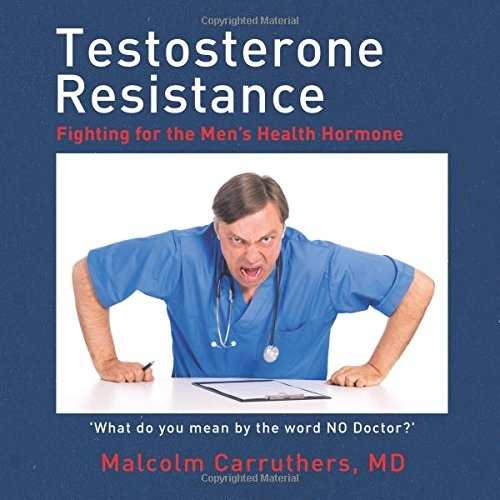Testosterone Resistance
This scathing critique of medical establishment orthodoxy presents a radical new approach to men’s health.
Malcolm Carruthers is a doctor on a mission in his latest book, Testosterone Resistance: Fighting for the Men’s Health Hormone. Not only does he make his best scientific and practical case for testosterone replacement therapy in aging men, but he skillfully turns the tables on a medical establishment that would proscribe his healing message.
Ironically, Carruthers is a major contributor to the medical establishment he criticizes. A doctor with great clinical experience, he’s also founder of the Centre for Men’s Health, president of the Society for the Study of Androgen Deficiency, adjunct professor in the Alzheimer’s and Aging Department at Edith Cowan University, and author of several books and more than a hundred articles in medical journals. These credentials help establish Carruthers’s credibility as he navigates a controversial topic.
Central to the book’s argument is the premise that testosterone deficiency—sometimes referred to as male menopause—is a serious systemic medical condition that can be linked to other conditions in men, including heart disease and Alzheimer’s. Extensively researched, with references included at the end of each chapter, the book argues with assurance that the common practice of testing hormone levels in patients to assess the need for testosterone is fallacious and misguided. Drawing parallels to diabetes, Carruthers shows how low testosterone in itself isn’t the problem; rather, low testosterone activity is, and the body’s resistance to the hormone’s “multiple complex actions” is what produces symptoms. Thus follows the book’s emphatic refrain: treat symptoms, not levels, so that men don’t suffer unnecessarily.
Besides providing ample evidence of the health benefits of testosterone replacement therapy, the book delivers a scathing critique of medical establishment orthodoxy. It criticizes both regulators, who level conspiratorial charges of profit motives behind “big pharma” hormone drugs, and the drug companies themselves that wrongly advertise such drugs as combating “low T” instead of “low T activity.” This critical double-edged sword suggests evenhandedness and the author’s sincere commitment to do well by his patients. Occasionally, the prose slips into hyperbole, using terms like “therapeutic nihilism,” but it stays on point overall, exposing a deep-seated bias toward “eminence-based medicine rather than evidence-based medicine.”
Some chapters are rigorously technical. The chapter on internal resistance, for example, uses complicated medical terminology to explain how cell receptors resist testosterone. Plentiful graphs and diagrams, however, simplify the science for the layperson. A symptom-based questionnaire included as an appendix further illuminates the book’s patient-centered, symptom-based approach.
Testosterone Resistance is aimed at the medical community, but it is written clearly enough to be informative for patients and other nonprofessionals interested in the increasingly contentious matter of testosterone deficiency. With this book, Carruthers expands discussion and awareness of men’s health issues.
Reviewed by
Scott Neuffer
Disclosure: This article is not an endorsement, but a review. The publisher of this book provided free copies of the book and paid a small fee to have their book reviewed by a professional reviewer. Foreword Reviews and Clarion Reviews make no guarantee that the publisher will receive a positive review. Foreword Magazine, Inc. is disclosing this in accordance with the Federal Trade Commission’s 16 CFR, Part 255.

